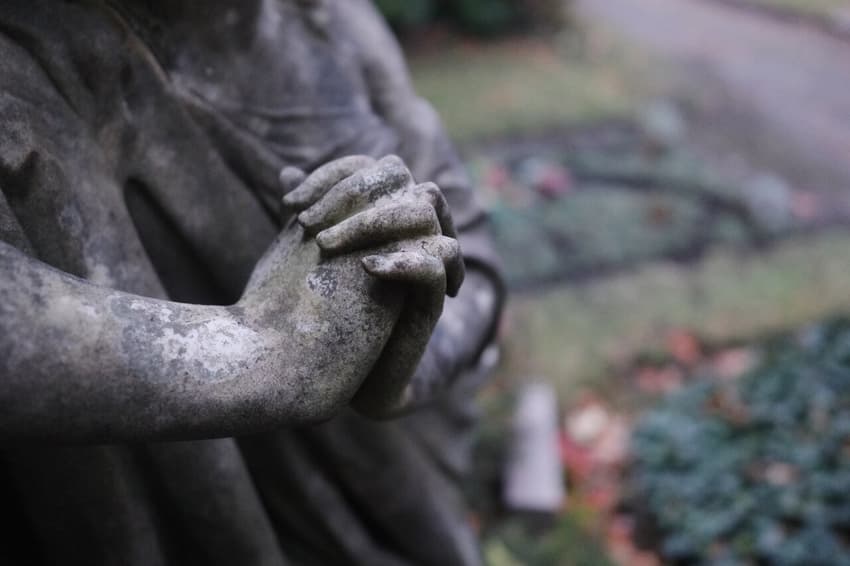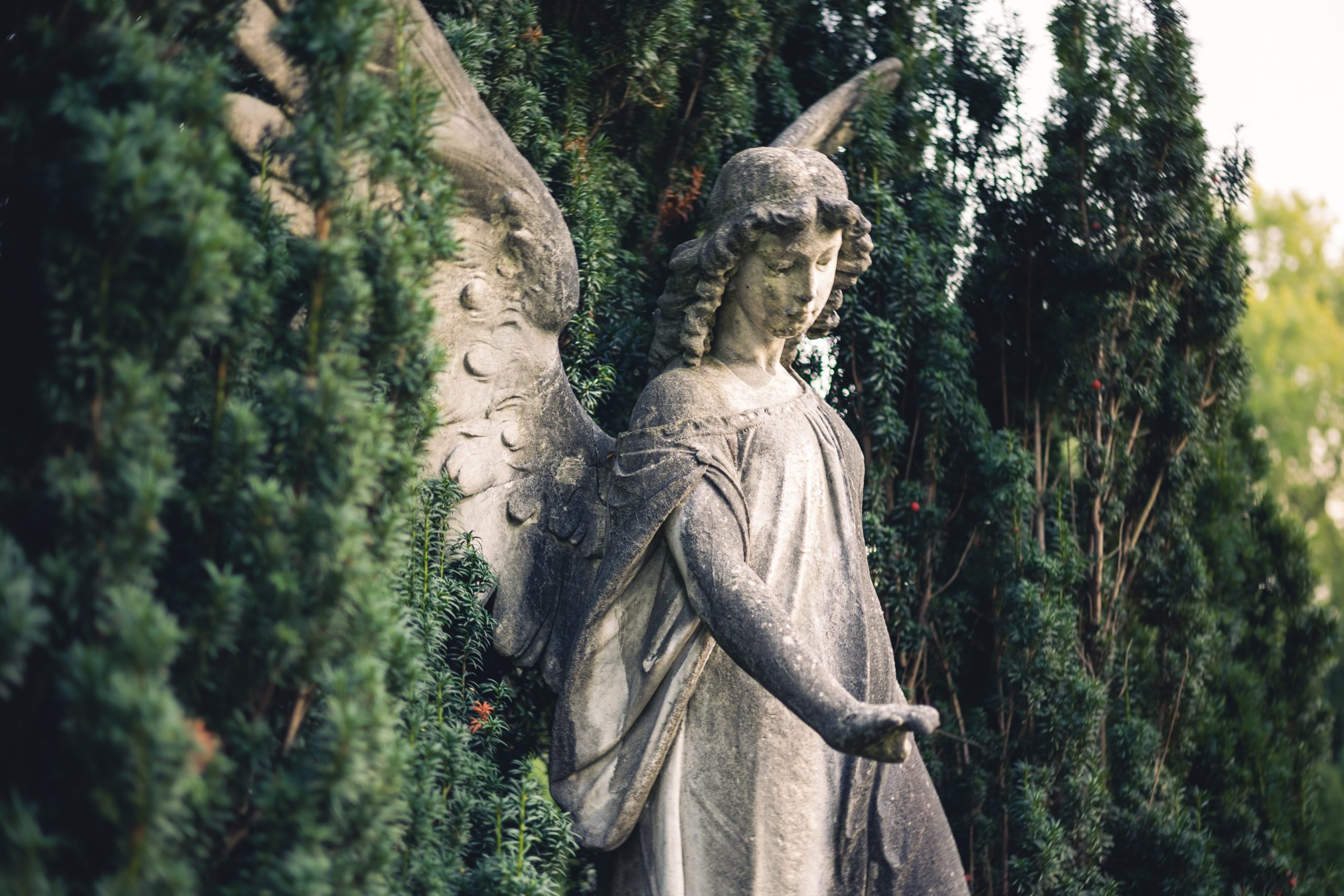Totensonntag: Six things to know about Germany's day to remember the dead

Totensonntag (Sunday of the Dead), also referred to as Ewigkeitssonntag (Eternity Sunday), holds a significant place among the various holidays observed in the German calendar.
This Protestant occasion serves as a poignant remembrance of departed loved ones, observed annually on the final Sunday before the start of Advent, this year falling on November 26th.
Below, you will find six facts to deepen your understanding of this commemorative day.
The day was first celebrated in 1816
The roots of Totensonntag trace back to the 1800s when it was initially commemorated within the Kingdom of Prussia.
King Friedrich Wilhelm III sought an occasion not only to honour the soldiers lost in the War of Liberation in 1813, but also to remember his late wife, Luise von Mecklenburg-Strelitz, who passed away in 1810.
It is a protected federal holiday
Every state except Hamburg mandates Totensonntag as a ‘silent day’ by law.
This decree typically imposes restrictions on public entertainment which may disrupt the solemnity of the occasion, encompassing restrictions on activities like dancing and live musical performances in various hospitality establishments.
It is not just a German holiday
Beyond Germany, Totensonntag is also observed in Switzerland, where it is more commonly recognised as ‘Ewigkeitssonntag’.
Countries with substantial Protestant populations, such as Austria, parts of Scandinavia and the Netherlands, often commemorate a similar day dedicated to honouring the deceased.
‘Totensonntag’ has an effect on Christmas markets
Traditionally, the most prominent markets, including those in Berlin, Munster, Munich, Augsburg, Bremen, Hanover, Lübeck, Frankfurt and Hamburg, commence operations on November 27th, the day after Totensonntag.
However, markets in other regions may open earlier and close on Sunday 26th.
READ ALSO: When will Germany's Christmas markets open this year?

A cemetery in Zurich. Photo by Tomas Trajan on Unsplash
There are different ways to celebrate ‘Totensonntag’
Many opt to visit the gravesites of departed loved ones, drawing comparisons to Mexico’s ‘el Día de los Muertos, though these visits predominantly occur during the daytime in Germany rather than at night.
Alternatively, some choose to attend church to light candles in honour of those they’ve lost, often lighting one candle per beloved individual.
It is not the only day to honour the departed
Germany also reserves a separate day to commemorate those lost in conflicts: ‘Volkstrauertag’ (Remembrance/Memorial Day), a tradition upheld since 1952.
This day is observed two Sundays before the first Sunday of Advent, marked by a ceremony in the German Bundestag, remembering and honouring victims of violence and war from all nations.
Comments
See Also
This Protestant occasion serves as a poignant remembrance of departed loved ones, observed annually on the final Sunday before the start of Advent, this year falling on November 26th.
Below, you will find six facts to deepen your understanding of this commemorative day.
The day was first celebrated in 1816
The roots of Totensonntag trace back to the 1800s when it was initially commemorated within the Kingdom of Prussia.
King Friedrich Wilhelm III sought an occasion not only to honour the soldiers lost in the War of Liberation in 1813, but also to remember his late wife, Luise von Mecklenburg-Strelitz, who passed away in 1810.
It is a protected federal holiday
Every state except Hamburg mandates Totensonntag as a ‘silent day’ by law.
This decree typically imposes restrictions on public entertainment which may disrupt the solemnity of the occasion, encompassing restrictions on activities like dancing and live musical performances in various hospitality establishments.
It is not just a German holiday
Beyond Germany, Totensonntag is also observed in Switzerland, where it is more commonly recognised as ‘Ewigkeitssonntag’.
Countries with substantial Protestant populations, such as Austria, parts of Scandinavia and the Netherlands, often commemorate a similar day dedicated to honouring the deceased.
‘Totensonntag’ has an effect on Christmas markets
Traditionally, the most prominent markets, including those in Berlin, Munster, Munich, Augsburg, Bremen, Hanover, Lübeck, Frankfurt and Hamburg, commence operations on November 27th, the day after Totensonntag.
However, markets in other regions may open earlier and close on Sunday 26th.
READ ALSO: When will Germany's Christmas markets open this year?

There are different ways to celebrate ‘Totensonntag’
Many opt to visit the gravesites of departed loved ones, drawing comparisons to Mexico’s ‘el Día de los Muertos, though these visits predominantly occur during the daytime in Germany rather than at night.
Alternatively, some choose to attend church to light candles in honour of those they’ve lost, often lighting one candle per beloved individual.
It is not the only day to honour the departed
Germany also reserves a separate day to commemorate those lost in conflicts: ‘Volkstrauertag’ (Remembrance/Memorial Day), a tradition upheld since 1952.
This day is observed two Sundays before the first Sunday of Advent, marked by a ceremony in the German Bundestag, remembering and honouring victims of violence and war from all nations.
Join the conversation in our comments section below. Share your own views and experience and if you have a question or suggestion for our journalists then email us at [email protected].
Please keep comments civil, constructive and on topic – and make sure to read our terms of use before getting involved.
Please log in here to leave a comment.